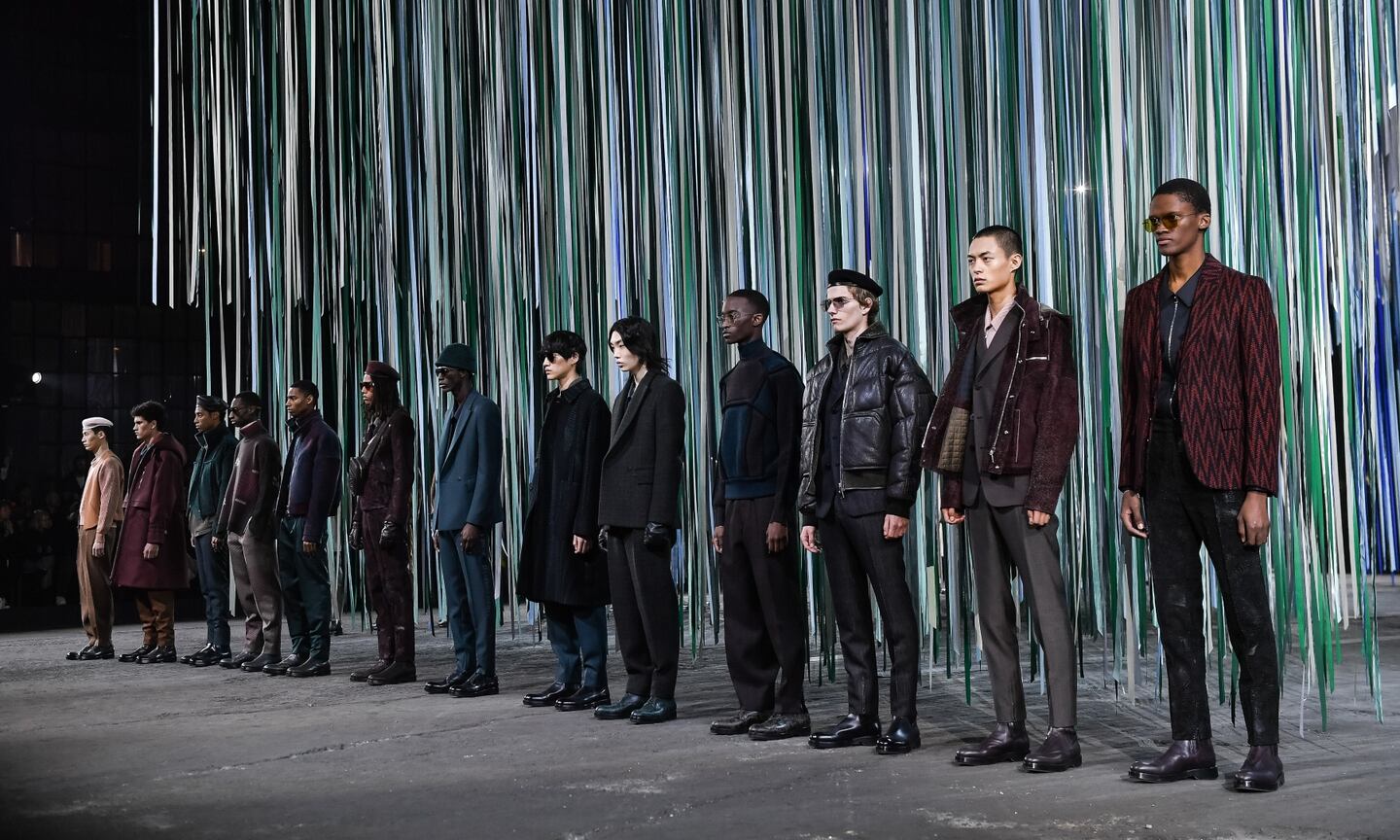
The Business of Fashion
Agenda-setting intelligence, analysis and advice for the global fashion community.

Agenda-setting intelligence, analysis and advice for the global fashion community.

One final fashion IPO is squeaking through in 2021.
On Monday, Zegna began trading on the New York Stock Exchange. The Italian luxury menswear brand stands out from the pack of mostly American start-ups that went public this year, a group that includes Warby Parker, Allbirds, Thredup and more.
Like those companies, Zegna, which trades under the ticker ZGN, was met with a warm initial reception from investors. The brand, valued at $3.1 billion as it went public, raised $761 million with its IPO. Shares rose nearly 6 percent in their first day of trading to close at $10.74.
The company staged its IPO via a special purpose acquisition company, or SPAC, a shell organisation created to merge with another firm and take it public. Zegna’s SPAC’s creation was led by European investment group Investindustrial and former UBS chief executive Sergio Ermotti. The Zegna family retains a 66 percent stake in the public company.
ADVERTISEMENT
In an interview, chief executive Gildo Zegna said the brand, which also owns Thom Browne, and the crowd of venture capital-backed companies that held IPOs earlier this year aren’t as different as they might first appear.
“I think of it as a start-up almost with a strong background of the history and the good things we did, but it’s a new beginning,” Zegna said. “The fact that we have the wind blowing in the right direction from New York is a good sign of hope.”
Zegna is receiving an influx of cash as it recovers from a steep drop in sales early in the pandemic, and looks beyond menswear staples such as suits and silk polo shirts. The company’s revenue fell by 23 percent in 2020, though it had made moves toward recovery by the first half of 2021, when Zegna also returned to profitability. In 2019, Zegna’s revenue was €1.3 billion ($1.5 billion), and the company expects to return to 2019 levels this year.
The 111-year-old company dropped the “Ermenegildo” from its name earlier this year, becoming simply “Zegna,” and folded two of its smaller sub-brands, Z Zegna, a sportswear line, and “XXX,” its runway label, underneath the wider Zegna umbrella.
The company will use the money it raised in its IPO to build up its brick-and-mortar footprint and expand beyond its staple suits — something that only became more important over the course of the last two years. Its signature product now represents 27 percent of sales, down from 44 percent in 2016.
“[We want to] change the perception from a power suit to a luxury leisure brand,” said Zegna.
That revamp has been brewing over the past few years, predating the pandemic that shook up the industry. In 2018, Zegna acquired Thom Browne’s brand at a $500 million valuation. The brand is open to future acquisitions, said Zegna, but wants to be meticulous about selecting the right partners.
“We will not be in a rush,” he said. “We have more resources than before but we will use them accordingly. We will not just spend money for the sake of adding brands or factories to the table. They have to fit within our strategy, our values, our DNA.”
ADVERTISEMENT
Zegna’s public filing is also a sign of continuing change in Italy’s fashion industry, which has previously seen decades-old heritage brands reluctant to pursue mergers, acquisitions of their own or in some cases, take a brand out of family control. Rumours have swirled around Armani potentially selling to an Italian luxury conglomerate this year, and Ferrari’s owners, the Agnelli family as well as Diesel parent OTB, both made acquisitions this year.
“Finally, the good traits of Italy are coming out,” Zegna said. “There is much more willingness to work among ourselves to exchange information and to open our capital to partners or to the market so the business overall is improving dramatically.”
The current wave of mergers and listings is expected to grow as big groups like LVMH and Kering surge ahead and Italy’s last remaining luxury independents face pressure to bounce back from the pandemic while juggling succession planning and digital transformation.
The Italian menswear brand is raising $880 million by merging with a New York-listed SPAC. The funds will give the luxury firm greater financial firepower to help it bounce back from a bruising pandemic year and fend off competitors.
Italian fashion entrepreneurs are adding new brands to their stables. How could recent deals like OTB’s acquisition of Jil Sander and Moncler’s purchase of Stone Island shift the sector?

Diana Pearl is News and Features Editor at The Business of Fashion. She is based in New York and drives BoF’s marketing and media coverage.
The Hood By Air co-founder’s ready-to-wear capsule for the Paris-based perfume and fashion house will be timed to coincide with the Met Gala in New York.
Revenues fell on a reported basis, confirming sector-wide fears that luxury demand would continue to slow.
IWC’s chief executive says it will keep leaning into its environmental message. But the watchmaker has scrapped a flagship sustainability report, and sustainability was less of a focus overall at this year’s Watches and Wonders Geneva.
The larger-than-life Italian designer, who built a fashion empire based on his own image, died in Florence last Friday.